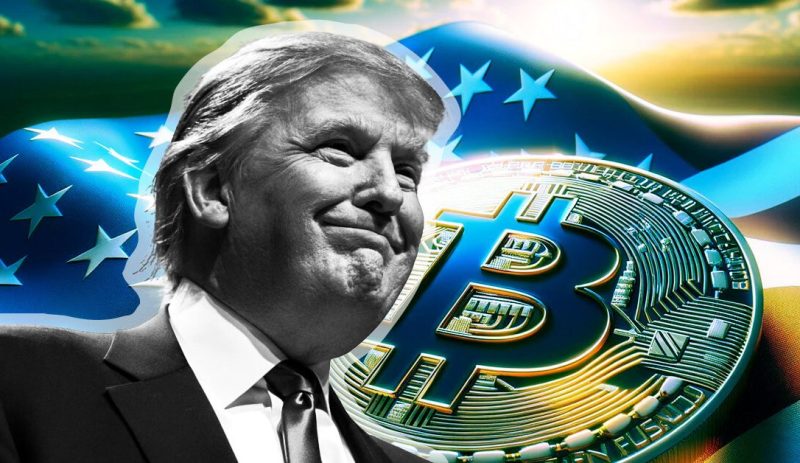Former U.S. President Donald Trump has announced his intention to accept cryptocurrency contributions for his 2024 presidential campaign, marking a significant shift in campaign fundraising strategies and political engagement with digital assets.
Details of the Announcement
The announcement came during an exclusive event for buyers of Trump’s “Mugshot Edition” NFTs and was shared by notable NFT figure Frank Degods through a series of video clips. Trump expressed strong support for cryptocurrency, positioning it as a key element of his campaign strategy. He assured his audience of his commitment to integrating cryptocurrency into his campaign finance operations, stating emphatically, “If you can’t, I’ll make sure you can. Can we donate to the Trump campaign using crypto? I believe the answer is yes.”
Political and Cryptocurrency Implications
This move by Trump not only enhances his appeal among cryptocurrency enthusiasts but also sets a distinct contrast between his stance and that of the current administration under President Joe Biden. Trump urged those supportive of digital currencies to back his candidacy, emphasizing, “If you like crypto in any form, and it comes in a lot of different forms, if you are in favor of crypto, you better vote for Trump.”
Also Read: Donald Trump Softens Stance on Bitcoin, Acknowledges Its Growing Use
Financial Perspectives on Trump’s Crypto Embrace
Financial analysts are already speculating on the potential impacts of Trump’s pro-cryptocurrency stance. Geoff Kendrick of Standard Chartered highlighted that a Trump-led administration could be beneficial for the cryptocurrency market, especially as a hedge against potential de-dollarization and declining confidence in the U.S. Treasury market.
Broader Impact on the Election and Cryptocurrency Markets
Trump’s proactive approach to incorporating cryptocurrency into his campaign fundraising efforts introduces a new dynamic into both the political sphere and the cryptocurrency industry. This strategy may influence other candidates and political parties to adopt similar measures as they recognize the growing importance and influence of digital assets in economic and political arenas.
